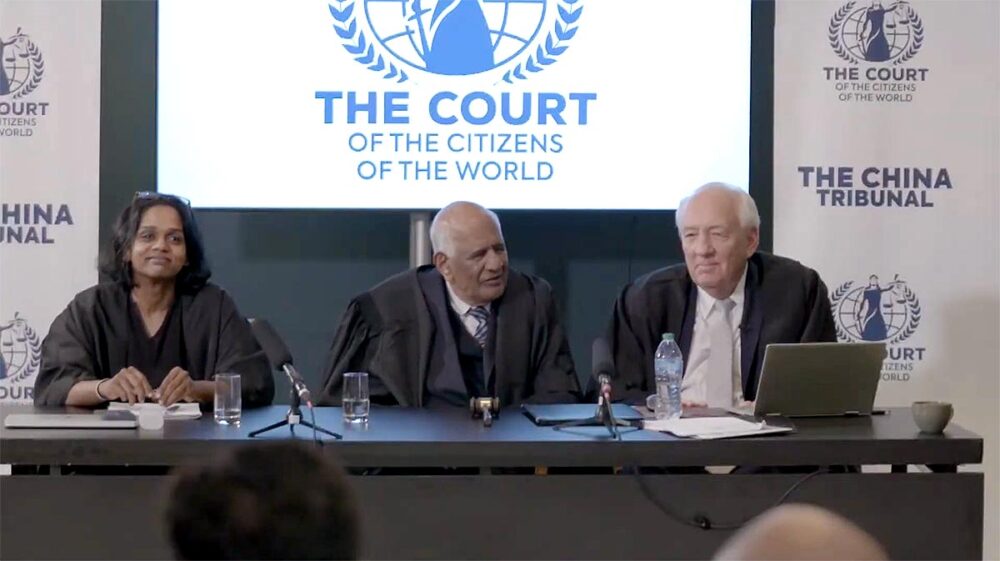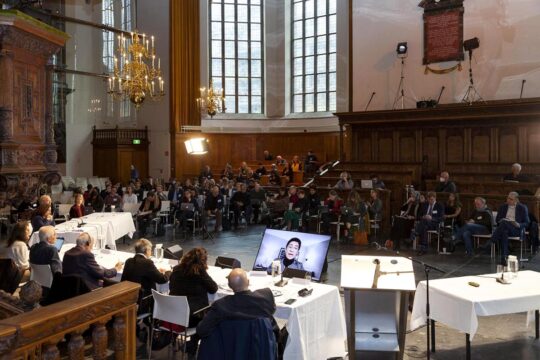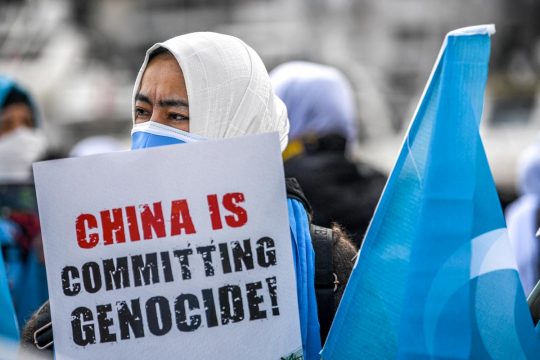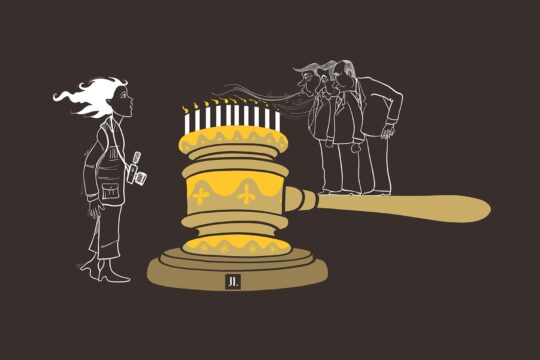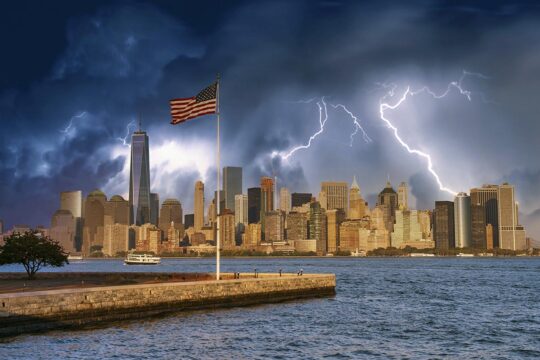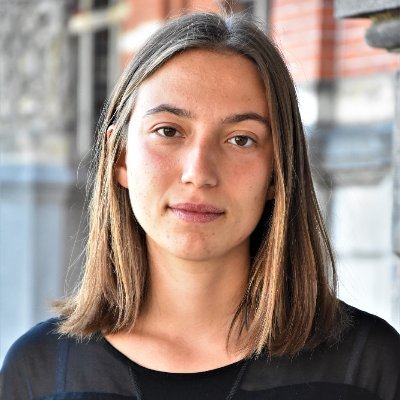Last week in The Hague, a people’s tribunal confirmed crimes against humanity and genocide charges against the People’s Republic of China President Xi Jinping. The hotel conference room turned into a court for the week and, on Friday July 12, many of the victims and witnesses followed the judgement with phone in hand to film the moment.
While the judges decided there was not enough evidence to confirm the count of aggression against Taiwan, Taiwanese statehood was recognised. They also found there was clear evidence of crimes against humanity against the local population in Tibet and the Uyghur community in Xinjiang, where they also confirmed charges of genocide.
In China, “there was evidence of a clear aim at annihilating a whole community”, said presiding judge Zac Yacoob, who served for 15 years in the constitutional court of South Africa, appointed by late President Nelson Mandela. Besides Yacoob, on the panel of judges were Bhavani Fonseka, prominent Sri Lankan constitutional and human rights lawyer, and Stephen Rapp, former US Ambassador-at-large for war crimes issues. “We hope the Chinese government will take note of this judgment,” said Yacoob, adding that he hopes the international community will also “take note” and reflect on holding the Chinese government accountable.
The hearings of the victims, witnesses, and expert witnesses took place from July 8 to 12, with the closing arguments and judgment on the final day. At three rows of tables facing each other, the legal team -- six men and two women all wearing traditional black robes -- sat with thick folders in front of them. The audience had to stand up as the judges entered. On the sidelines were four cameramen, moving around and signalling to each other to get the best shots. They are making a documentary on the event.
Creating a legal blueprint?
This was the second visit to The Hague for the Court of the Citizens of the World, organized by the Cinema for Peace Foundation. In February 2023, they organised a tribunal in relation to the crime of aggression in Ukraine, which confirmed the ICC indictment of Russian President Vladimir Putin. People’s tribunals face criticism regarding their purpose and lack of authority, but are also considered as a way to create a legal blueprint for possible cases.
A people’s court has no legislative power. Here, it applied the Rome Statute of the ICC and was not organizing a trial but a confirmation of charges hearing in absentia. This is much like the pre-trial chamber of the International Criminal Court will do next October in the Joseph Kony case, said Rapp. He says the people’s tribunal “provides the victims and survivors with an opportunity to have some sort of judicial proceedings. It was a simulated process, and it was understood as such but it is still the next best thing”.
Delays and disorganization
Not unlike sometimes in real international courts, the process leading up to this people’s tribunal was also marked by delays and disorganization. The trial was initially scheduled for April 27 to May 4. However, on April 19, Justice Info received the update that the whole process had been postponed to July. Then, a few days before the real start of the event came allegations of interference from China, disclosed to the participants only, which allegedly caused the organisation to move to a new location.
The day we could attend in person was the last day of testimonies before the judgment, Thursday July 11. The audience was around 10 people, half of them victims and witnesses. Among them were a Tibetan monk wearing a red robe and a Uyghur man with a traditional hat. Some of the victims had signs with photos of their loved ones who were killed or disappeared. A first victim testified, a Uyghur man now in the diaspora who had been detained in Xinjiang for 15 months in 2013-14. He held a photo of his niece and recounted how she asked him and other members of their family not to speak out, so as to protect everyone’s safety. He said she was later tortured and killed in China in 2018.
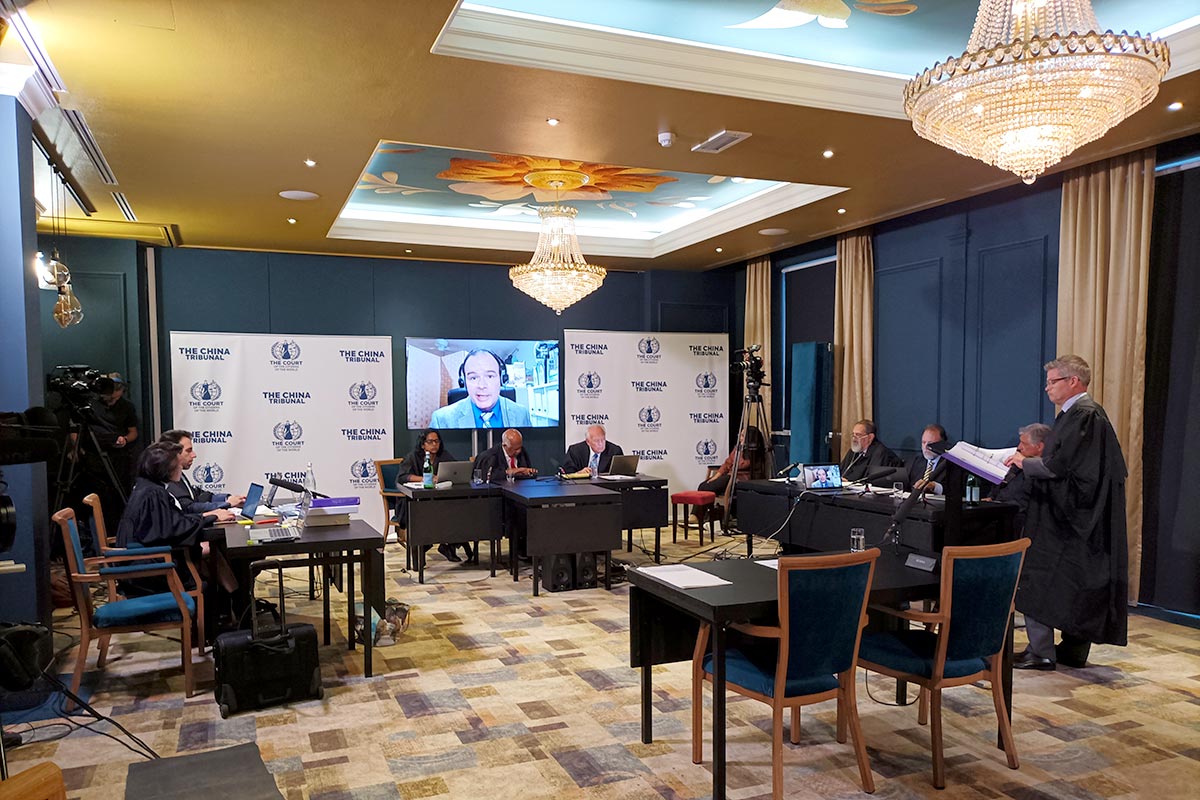
Expert witness, victims, defence, prosecutor
The Uyghur are a Turkic-speaking and largely Muslim people mostly living in Xinjiang Uygur Autonomous Region in north-western China. Adrian Zenz, an international expert on internal Chinese government documents and the Xinjiang internment campaign, testifying remotely, explained how there is evidence in the policies of President Xi Jinping of an intent to “weaken and control the Uyghurs”. This was done with the construction of re-education camps where people could be sent even preventively. The Chinese government accused the Uyghurs of being terrorists and used national security as a justification for the repression.
The first Uyghur victim, who asked not to be named, then spoke of his arrest on false accusation, of multiple interrogations on a “tiger chair” [used to immobilize suspects], of “food and water deprivation”, of sexual abuse and torture. He had to confess a minor crime and go through two trials before he could be freed, only to find a city full of cameras for face recognition, where as a Uyghur with a criminal record he was banned almost anywhere. Cross-examined by defence lawyer Gregor Guy-Smith, a former president of the Association of Defence for the International Court for the former Yugoslavia, he was asked about one of the trials he faced in China, which the victim described as trumped up. “Was it a piece of theatre like this?” asked the defence lawyer and he gestured to the room.
The second victim testifying was a woman, speaking with the help of an interpreter. She was sent to a re-education camp in Xinjang under bogus charges, she said. She explained how “the Uyghur language was prohibited” and “praying was prohibited”. They had to study Mandarin, sing the Party songs, and praise Xi Jinping. Once she was interrogated for six days and asked questions like “Are you part of a terrorist organisation? Do you want to divide the country?”. She was then made to record a video that the police scripted for her.
The prosecutor, Jonathan Rees, a British KC who worked on defence before the Kosovo Specialist Chambers, said in his closing argument that “President Xi bears criminal responsibility for inciting, inducing, committing and contributing to those offences”. In the judgment, Yacoob confirmed all counts of genocide and crimes against humanity, including imprisonment, torture, sexual violence and enforced sterilization. The crimes were “wide and systematic, were planned and involved state apparatus from beginning to end,” he concluded.
CHINESE “INTERFERENCE” AND INTERNAL CONFLICTS
Before and during the event, the court communication team and one of the victims raised allegations of Chinese interference. The victim was a Uyghur activist now living in the Netherlands. He said he was contacted via Telegram by the Chinese police and received messages from one of his relatives living in China, who asked him not to attend the hearings.
In a statement sent to us on July 17, the court communication explained how the initial venue, a conference centre in The Hague city centre, received threats and fake legal letters, so they cancelled the reservation a few days before the start. Contacted by Justice Info, the director of the centre confirmed that they received emails, anonymous phone calls and threats. However, he said that they had to cancel the event because of its political subject.
The same July 17 statement said that earlier this month one or two alleged spies infiltrated the organisation as legal volunteers and claimed in a group message that “the Court is not paying its staff and is acting unjustly”.
A former volunteer, who asked not to be identified, explained to Justice Info that the two volunteers sent the message to the WhatsApp group to discuss with the leadership their complaints about delays in payment and the working conditions. Following the message, they were accused of being secret agents. This led a group of around five volunteers to resign at once. The resignation letter includes reasons such as a toxic work environment, lack of management and adequate conflict resolution, and delays in payment.
“There’s a large degree of internal disorganization,” said Brian Hioe, Taiwanese journalist and founder of the online magazine New Bloom. Hioe was supposed to join the tribunal in May as a witness, but he decided to leave the process. He points to meetings being delayed or postponed, to the documentary being announced a few weeks before the event while many have privacy concerns, and then the whole event being delayed around a week before it was scheduled, in late April. Most of the participants had already booked time off work.
Asked for a reply, the People’s Court denied all the allegations. They added that the postponement from May to July was requested by the legal professionals involved to gather more evidence on all charges and continue the witness screening process. According to them, the documentary was always part of the planned process and was communicated to the participants.


